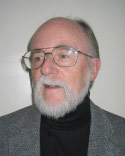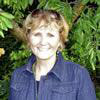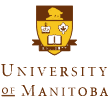2010 Summer Institute – Health of Populations Evaluation
June 14 to 18, 2010 – Winnipeg, Manitoba
Workgroup Presentations from the 2010 case study work groups are now available to download. These presentations were program planning and evaluation frameworks developed by students and participants.
- [download id=”1″]
- [download id=”2″]
- [download id=”3″]
- [download id=”4″]
- [download id=”5″]
- [download id=”6″]
- [download id=”7″]
Keynote Speaker Presentations and Materials
- [download id=”8″]
- [download id=”9″]
- [download id=”10″]
- [download id=”11″]
- [download id=”12″]
- [download id=”13″]
- [download id=”14″]
- [download id=”15″]
- [download id=”16″]
- [download id=”17″]
- [download id=”18″]
[catlist id=3]
Read the Final Report!
This evaluation report is based on feedback obtained during the week at interactive feedback sessions, from written evaluation forms completed daily by participants, and from a follow-up, online evaluation (survey) implemented after the Institute.
Program Details
Five organizations partnered to establish a community-university network to conduct applied evaluation research for knowledge development, exchange and utilization. As their first initiative the group is organized the Summer Institute: Health of Populations Evaluation (HOPE).
Open to students and community, the Summer Institute enabled participants to exchange information about evaluation for improved health promotion planning and delivery.
The program targeted:
- Project managers and coordinators responsible for the monitoring and evaluation of their programs, projects or organizations;
- Community leaders and workers with project responsibilities;
- Decision makers looking at new ways to make their programs more participatory and responsive to local needs;
- Undergraduate and graduate students seeking to improve their skills and knowledge in the area of community-based program evaluation;
- All those seeking to connect with students, practitioners and researchers involved in delivery and evaluation of a broad range of health and social services.
A combination of lecture, case study and group work was used to introduce 75 participants to the concepts of participatory evaluation focusing on the social, economic and environmental determinants of health and well-being.
In addition to workshops and seminars, participants were offered five keynote presentations offered by distinguished lecturers from Canada and around the world including Dr. Michael Quinn Patton (Designing Evaluations that Actually Get Used); Dr. Margaret Kovach (Indigenous Methodologies in Evaluation); Dr. Mark Tyndall (HIV Research); Dr. Barbara Macdonald (Evaluating Programs to Reduce Malnutrition); and Dr. Shauna Butterwick (The Realities of Evaluation Interdisciplinary and Researchers as Public Intellectuals).
Currently, the 2010 Summer Institute: Health of Populations Evaluation is being evaluated, and possible directions for future Summer Institutes are being developed.
The HOPE Summer Institute used a combination of lecture, case study and group work introducing 75 participants to the concepts of participatory evaluation focusing on the social, economic and environmental determinants of health and well-being.
In addition to workshops and seminars, participants were offered five keynote presentations offered by distinguished lecturers from Canada and around the world including Dr. Michael Quinn Patton (Designing Evaluations that Actually Get Used); Dr. Margaret Kovach (Indigenous Methodologies in Evaluation); Dr. Mark Tyndall (HIV Research); Dr. Barbara Macdonald (Evaluating Programs to Reduce Malnutrition); and Dr. Shauna Butterwick (The Realities of Evaluation Interdisciplinary and Researchers as Public Intellectuals).
The 2010 HOPE Summer Institute consisted of two parallel streams:
Program Evaluation
This stream was open to all and introduced participants to the theories and approaches of carrying out Applied Program Evaluation in a participatory manner.
Download the Participatory Program Evaluation agenda
HIV Research
This stream is related to HIV evaluation research. Spaces in this stream were reserved for fellows enrolled in the University Without Walls Program and five additional community organizations involved in community based HIV research.
Download the HIV Research draft agenda
Public Lecture on Developmental Evaluation featuring Dr. Michael Quinn Patton and hosted by the Manitoba Chapter of the Canadian Evaluation Society (CES) held Monday, June 14, 2010 from 7:30 to 9:00 pm at the Schultz Auditorium, St. John’s College, University of Manitoba.
Speakers
Michael Quinn Patton
 Patton is an independent organizational development and evaluation consultant. He is former President of the American Evaluation Association. He is the only recipient of both the Alva and Gunnar Myrdal Award from the Evaluation Research Society for “outstanding contributions to evaluation use and practice” and the Paul F. Lazarsfeld Award for lifetime contributions to evaluation theory from the American Evaluation Association. The Society for Applied Sociology honored him with the 2001 Lester F. Ward Award for Outstanding Contributions to Applied Sociology. He was the Gwen Iding Brogden Distinguished Lecturer at the 2008 National Conference on Systems of Care Research for Children’s Mental Health.
Patton is an independent organizational development and evaluation consultant. He is former President of the American Evaluation Association. He is the only recipient of both the Alva and Gunnar Myrdal Award from the Evaluation Research Society for “outstanding contributions to evaluation use and practice” and the Paul F. Lazarsfeld Award for lifetime contributions to evaluation theory from the American Evaluation Association. The Society for Applied Sociology honored him with the 2001 Lester F. Ward Award for Outstanding Contributions to Applied Sociology. He was the Gwen Iding Brogden Distinguished Lecturer at the 2008 National Conference on Systems of Care Research for Children’s Mental Health.
He is the author of five evaluation books including a 4th edition of Utilization-Focused Evaluation (2008) and 3rd edition of Qualitative Research and Evaluation Methods (2002). These books have been used in over 500 universities worldwide. He is also author of Creative Evaluation (1987); Practical Evaluation (1982); and Culture and Evaluation (1985). He has co-authored a book on the dynamics of social innovation with two Canadians drawing on complexity theory and systems thinking: Getting to Maybe: How the World is Changed (Random House, 2006). His new book on Developmental Evaluation is due out in 2009.
After receiving his doctorate in Sociology from the University of Wisconsin, he spent 18 years on the faculty of the University of Minnesota (1973-1991), including five years as Director of the Minnesota Center for Social Research and ten years with the Minnesota Extension Service. He received the University’s Morse‑Amoco Award for outstanding teaching. He also served as a faculty member with the Union Institute & University for 16 years.
He was the keynote presenter for the launching of the Latin American Evaluation Network in Peru in 2004, the African Evaluation Society in Nairobi, Kenya in 1999 and at the European Evaluation Society in Switzerland in 2000. He has twice keynoted the American, Canadian, and Australasian Evaluation Society conferences, as well as national evaluation conferences for the United Kingdom, New Zealand, Italy, Denmark, Japan, and Brazil. He is a regular trainer for the World Bank in Ottawa, the American Evaluation Association’s professional development courses, and The Evaluators’ Institute. In June, 2009, he is once again keynoting the Canadian Evaluation Society in Ottawa.
He has worked with organizations and programs at the international, national, state, and local levels, and with philanthropic, not-for-profit, private sector, and government programs. He has worked with peoples from many different cultures and perspectives. He is a generalist working across the full range of efforts at improving human effectiveness and results, including programs in leadership development, education, human services, the environment, public health, employment, agricultural extension, arts, criminal justice, poverty programs, transportation, diversity, managing for results, performance indicators, effective governance, and futuring. He uses a variety of evaluation and research methods, with special focus on mixed methods designs and analysis.
Barbara Macdonald
Director, Performance Measurement and Research
Global Alliance for Improved Nutrition (GAIN)
A Canadian national, Barbara Macdonald joined the Global Alliance for Improved Nutrition (GAIN) in July 2005 as Senior Manager for GAIN’s Performance Measurement and Research Program. In May 2009, she became Director of the Program. In this role, Dr. Macdonald leads the development and implementation of GAIN’s performance measurement frameworks including the development of new indicators. She also leads research to strengthen program performance and identify new areas of investment for GAIN.
Dr. Macdonald has undergraduate and Master’s degrees in the field of foods and nutrition from the University of Manitoba and a PhD in human nutrition from McGill University. Her special areas of interest include linking food and nutrition sector initiatives to enhance health outcomes and evidence-based approaches to improve nutrition program design and implementation.
Prior to joining GAIN, Barbara worked as the technical focal point for international nutrition at the Canadian International Development Agency (CIDA), the Canadian Ministry responsible for international cooperation. She also worked for Canada’s International Development Research Center (IDRC) where she studied food systems in the Andes Region of South America. During her affiliation with IDRC in the 1990s, Barbara lived in Peru and Ecuador for three years.
Barbara regularly publishes scientific papers in international nutrition-focused journals and has also published in the Cochrane Database of systematic reviews. She has received numerous awards including an award from CIDA for implementation of the Agency’s Vitamin A Strategy.
Dr. Mark Tyndall, MD, ScD, FRCPC
Head, Division of Infectious Diseases, Providence Health Care Vancouver, Canada
 Dr. Mark Tyndall is a Professor of Medicine at the University of British Columbia and is the head of the Infectious Diseases division at St. Paul’s Hospital. He received his Medical degree from McMaster University and a Doctoral degree in Epidemiology from the Harvard School of Public Health. He joined the BC Centre for Excellence in HIV/AIDS in 1999 where he is the Program Director for Epidemiology. He is currently conducting a number of research projects in Vancouver, including epidemiologic studies of HIV and Hepatitis C transmission, antiretroviral access among injection drug users, and health care utilization among marginalized populations.
Dr. Mark Tyndall is a Professor of Medicine at the University of British Columbia and is the head of the Infectious Diseases division at St. Paul’s Hospital. He received his Medical degree from McMaster University and a Doctoral degree in Epidemiology from the Harvard School of Public Health. He joined the BC Centre for Excellence in HIV/AIDS in 1999 where he is the Program Director for Epidemiology. He is currently conducting a number of research projects in Vancouver, including epidemiologic studies of HIV and Hepatitis C transmission, antiretroviral access among injection drug users, and health care utilization among marginalized populations.
Dr. Shauna Butterwick, BSc, MA, EdD
Associate Professor, Department of Educational Studies, University of British Columbia.
 Shauna Butterwick is an Associate Professor in the Department of Educational Studies (EDST) at the University of British Columbia. She has been a tenure track faculty member in EDST since 1997 teaching mainly in the Adult Education program, and also contributing to other programmatic areas including educational leadership, feminist studies, policy studies, qualitative research methodology, and teacher education.
Shauna Butterwick is an Associate Professor in the Department of Educational Studies (EDST) at the University of British Columbia. She has been a tenure track faculty member in EDST since 1997 teaching mainly in the Adult Education program, and also contributing to other programmatic areas including educational leadership, feminist studies, policy studies, qualitative research methodology, and teacher education.
Her research, using qualitative, arts-informed and action-oriented, community-based methodologies, has focused on examining marginalized groups’
adult learning within a variety of contexts including social movements, community agencies, the workplace, and within welfare programs. She is currently serving as the coordinator of the Adult Education program, overseeing that program’s curriculum revision process. She maintains strong ties to the community and has served as a consultant on matters of pedagogy, policy and research.
* Note: Universities Without Walls – The next generation of HIV researchers in Canada is funded by a Strategic Training Initiative in Health Research grant of the Canadian Institutes of Health Research and is based at the Ontario HIV Treatment Network.










 Patton is an independent organizational development and evaluation consultant. He is former President of the American Evaluation Association. He is the only recipient of both the Alva and Gunnar Myrdal Award from the Evaluation Research Society for “outstanding contributions to evaluation use and practice” and the Paul F. Lazarsfeld Award for lifetime contributions to evaluation theory from the American Evaluation Association. The Society for Applied Sociology honored him with the 2001 Lester F. Ward Award for Outstanding Contributions to Applied Sociology. He was the Gwen Iding Brogden Distinguished Lecturer at the 2008 National Conference on Systems of Care Research for Children’s Mental Health.
Patton is an independent organizational development and evaluation consultant. He is former President of the American Evaluation Association. He is the only recipient of both the Alva and Gunnar Myrdal Award from the Evaluation Research Society for “outstanding contributions to evaluation use and practice” and the Paul F. Lazarsfeld Award for lifetime contributions to evaluation theory from the American Evaluation Association. The Society for Applied Sociology honored him with the 2001 Lester F. Ward Award for Outstanding Contributions to Applied Sociology. He was the Gwen Iding Brogden Distinguished Lecturer at the 2008 National Conference on Systems of Care Research for Children’s Mental Health. Dr. Mark Tyndall is a Professor of Medicine at the University of British Columbia and is the head of the Infectious Diseases division at St. Paul’s Hospital. He received his Medical degree from McMaster University and a Doctoral degree in Epidemiology from the Harvard School of Public Health. He joined the BC Centre for Excellence in HIV/AIDS in 1999 where he is the Program Director for Epidemiology. He is currently conducting a number of research projects in Vancouver, including epidemiologic studies of HIV and Hepatitis C transmission, antiretroviral access among injection drug users, and health care utilization among marginalized populations.
Dr. Mark Tyndall is a Professor of Medicine at the University of British Columbia and is the head of the Infectious Diseases division at St. Paul’s Hospital. He received his Medical degree from McMaster University and a Doctoral degree in Epidemiology from the Harvard School of Public Health. He joined the BC Centre for Excellence in HIV/AIDS in 1999 where he is the Program Director for Epidemiology. He is currently conducting a number of research projects in Vancouver, including epidemiologic studies of HIV and Hepatitis C transmission, antiretroviral access among injection drug users, and health care utilization among marginalized populations. Shauna Butterwick is an Associate Professor in the Department of Educational Studies (EDST) at the University of British Columbia. She has been a tenure track faculty member in EDST since 1997 teaching mainly in the Adult Education program, and also contributing to other programmatic areas including educational leadership, feminist studies, policy studies, qualitative research methodology, and teacher education.
Shauna Butterwick is an Associate Professor in the Department of Educational Studies (EDST) at the University of British Columbia. She has been a tenure track faculty member in EDST since 1997 teaching mainly in the Adult Education program, and also contributing to other programmatic areas including educational leadership, feminist studies, policy studies, qualitative research methodology, and teacher education.




